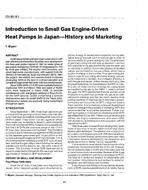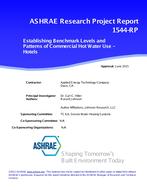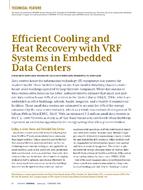Providing for ventilation airflow behind wall claddings has been shown to reduce the risk of condensation due to sun-driven moisture when rain wets an absorptive exterior surface and solar radiation subsequently drives this moisture toward the building interior. Historically, enclosure designers have relied on rules of thumb or on knowledge of cladding ventilation designs that have worked successfully in various climates. Only recently are some of the widely available commercial hygrothermal analysis programs attempting to model the effect of wall-cladding ventilation. This may provide a way for enclosure designers to accurately model and predict the effect of wall-cladding ventilation.
This paper compares the results of a hygrothermal simulation program with the results of a series of laboratory tests designed to study the performance of wall systems with ventilated wood siding under sun-driven moisture conditions. The amount of ventilation behind the siding was measured, as well as the temperature and relative humidity profiles. Gravimetric measurements were also made of each component to quantify the amount of moisture accumulation and redistribution within the wall system. Conclusions are drawn on how well the hygrothermal simulation program predicts the effect of wall-cladding ventilation on condensation due to sun-driven moisture.
Presented at Thermal Performance of Exterior Envelopes of Whole Buildings X – December 2007
Units: Dual
Citation: Thermal Performance of Exterior Envelopes of Whole Buildings X
Product Details
- Published:
- 2008
- Number of Pages:
- 10
- File Size:
- 1 file , 4 MB
- Product Code(s):
- D-BldgsX154


